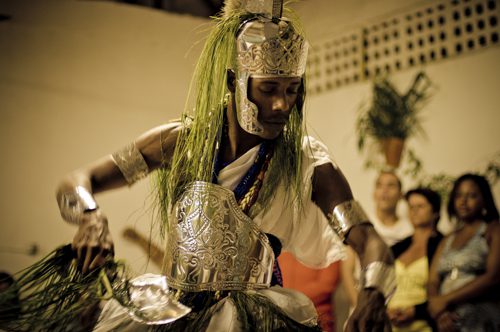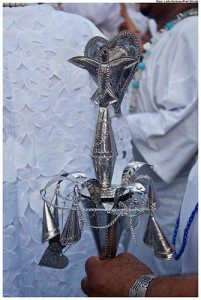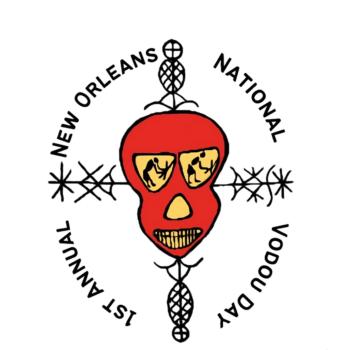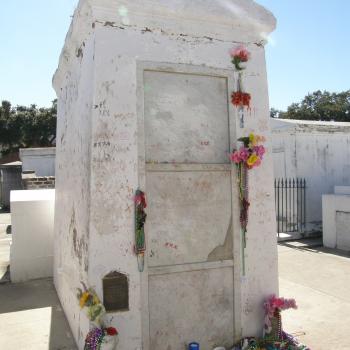
This book excites me: Not for the answers it provides, but for the questions it raises. I’m an anthropologist, in addition to being a Voodoo priestess, and this work is important for the study of Witchcraft, the Occult, and African and Afro-Diasporan Religions ( be it New Orleans Voodoo, Haitian Vodou, Cuban Santeria, or Brazilian Candomble) across the globe. Peter Geschiere is a professor at the University of Amsterdam and Witchcraft, Intimacy and Trust: Africa in Comparison is his latest contribution to the discipline of African anthropology. Let me start by mentioning that this reads like an anthropological textbook, so if academic reading doesn’t lift your skirt you may want to look elsewhere. That said, let’s have a look at some of the valuable information provided here.
The Problem of Witchcraft
Now Pagans and non-Pagans alike will probably be confused about the use of the word “witchcraft.” The author knows this, and this is the first issue Geschiere addresses in the text. This is about witchcraft as an anthropological term that has been in use for over a hundred years. Some situate the term as being an opposite of Religion, other more recent academics place it squarely within the confines of religious practice, where I think it definitely belongs in our modern context. Peter Geschiere has spent four decades doing fieldwork in Cameroon. It became clear to him early on that whatever topic he was discussing, people kept bringing the subject back to witchcraft, sorcery, and what Westerners would call the Occult or Magick (with a “k”). During his interviews he realized that whatever this mysterious thing was, it’s definition was highly elastic. This is something I have frequently experience in my own participant observation research in New Orleans and elsewhere. If you ask the question is Magick “X” or “Y”? The answer is most always “Yes.” Witchcraft as part of it’s very nature, according to Geschiere, “ defies all classification and distinction.” The book also challenges the notion of an African continuity of practices, a concept many Westerners seem to have a hard time letting go of belief around.
Intimacy and Trust
Intimacy and trust are at the core of our very survival, yet their definitions are slippery things as well. This book explores these concepts both from a psychological and a sociological standpoint. Geschiere’s own research showed Witchcraft as a very real, and close threat. Witchcraft was present in every situation from politics to family relations. It very obviously called into play this notion of intimacy. The author locates all these ideas witchcraft, intimacy and the ever slippery notion of trust in what he deems a “triad of uncertainty.” He examines many different cultures and practices, but for the purposes of this blog I am going to focus on his Candomble chapter primarily.
Candomble: Brazil’s “Witchcraft” Goes Pro

Haiti has Vodou, Brazil has Candomble. While the religion may have been stigmatized in Brazil’s early years, now they are an established and a respected tradition. Personally I have a great respect and admiration for Brazil’s Candomble worshipers, they have been able to standardize their religion, giving it a respectability and structure that we can only strive for here in the U.S. Their spiritual houses, priests, priestesses, drummers, and participants are monitored. Their practices are supported by the government and they frequently have large public rituals and ceremonies. Witchcraft, Intimacy and Trust speaks of the very important role the Candomble spiritual houses, or Terrerios, hold. They function as a spiritual family for a people whose ancestors were enslaved. A sort of “displaced replacement” for those who now look to their spiritual godparents as parents, and their students as children. Like in New Orleans Voodoo and Santeria (Lukumi) the spiritual center is seen as home. Also like in these religions, Candomble has it’s share of rivalry between houses and house members. Again we explore notions of intimacy and trust. Geschiere believes that unlike many African communities Candomble has built “quite effective forms of trust not by denying the invisible forces but, in contrast by embracing them.” (p. 147) The book goes on to detail the history of Candomble studies including such notables as Ruth Landes, and more recent studies by scholars like Brian Brazeal. There is even one particularly funny notation where a possession is described as possible drunkenness… something many Santeria devotees would be familiar with as the phenomenon of Santo Borracho. There is a wealth of information here, I commend Peter Geschiere for his very important work and would definitely recommend this book. Let me know what you think? What are your thoughts about your own religion and it’s notions of Witchcraft, Identity and Trust, I’d love to hear them.













